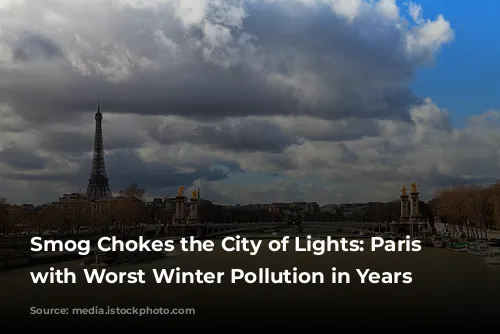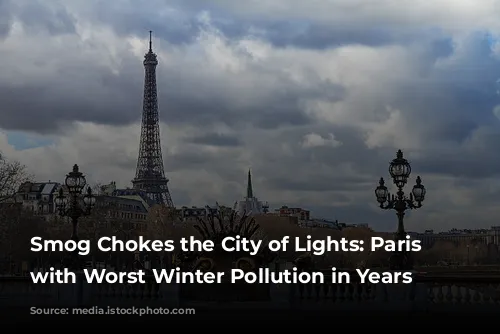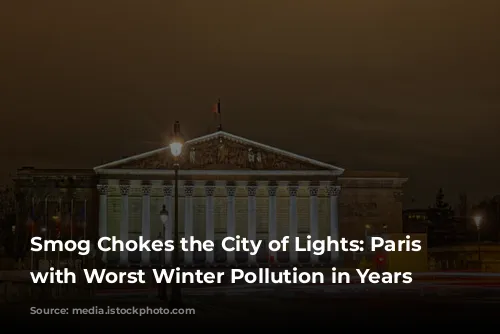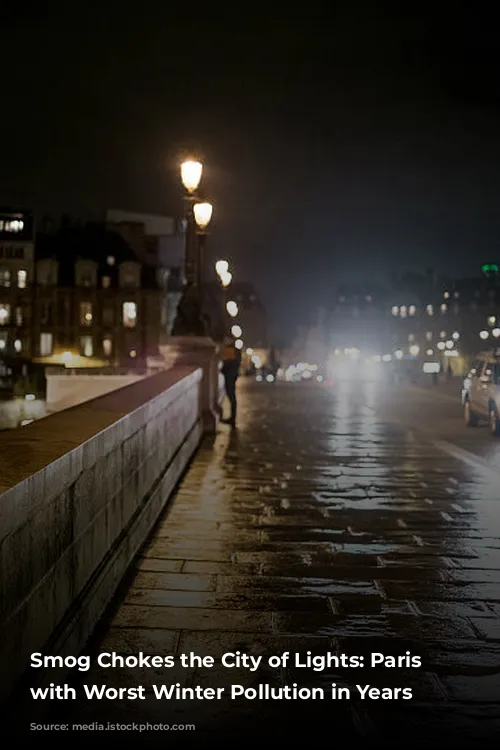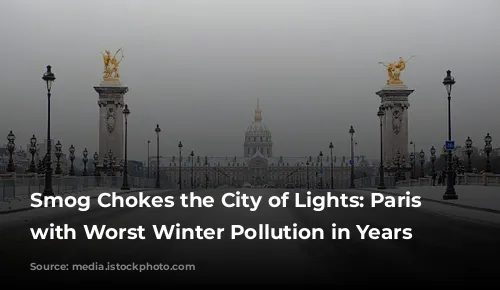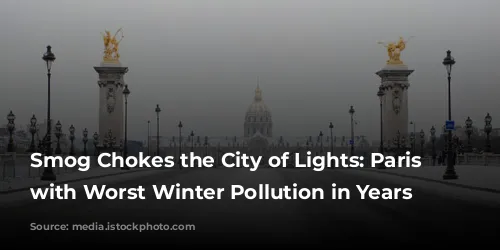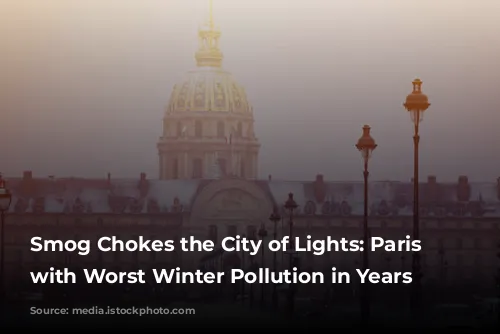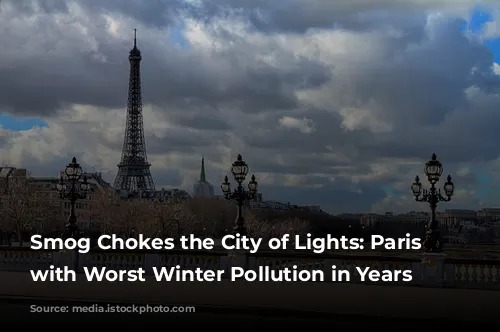Paris, the City of Lights, is shrouded in a thick blanket of smog, making its iconic Eiffel Tower nearly invisible. This recent smog is the worst winter pollution in a decade, and it has put the city in a health crisis.
A City Under Smog
The situation in Paris is particularly dire because the city already faces air quality challenges. However, the current cold weather and lack of wind have trapped exhaust fumes, smoke from wood-burning fireplaces, and industrial pollutants, creating a hazardous cocktail.
The severity of the pollution is alarming. The campaign “Stoppollution”, launched by Paris City Hall, warns that breathing the air in Paris during this peak pollution period is equivalent to smoking eight cigarettes a day in a confined space.
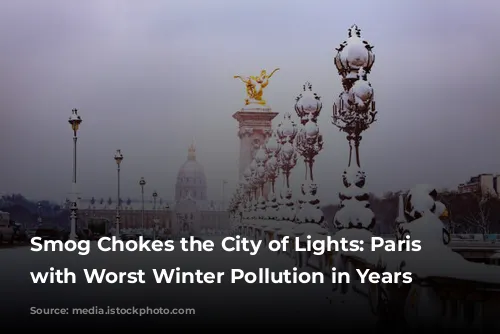
Desperate Measures, Limited Success
To address the crisis, city officials have implemented extraordinary traffic control measures, including bans on private vehicles on alternating days. Unfortunately, many drivers disregarded the restrictions, leading to their suspension over the weekend.
To encourage alternative transportation, the city offered free public transportation and access to the city’s shared bicycle and electric car services (Vélib and Autolib).
Signs of Hope and the Looming Threat
The weekend brought some relief as traffic decreased and a gentle breeze helped disperse some of the pollutants. However, the Airparif agency, which monitors air quality in the region, cautioned that pollution levels might spike again this week due to continuing stagnant weather conditions.
Despite the temporary improvement, the air quality remains concerning. Even though extreme weather conditions are expected to subside, pollutant particles will likely remain at high concentrations.
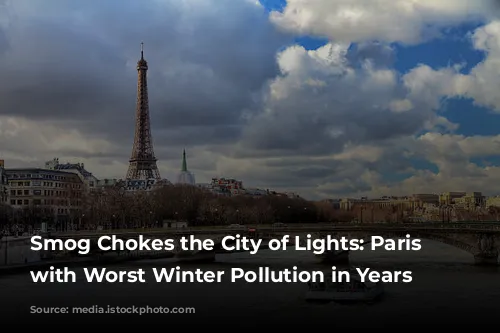
Government Action: Combating Pollution
The government has taken the situation seriously. A cabinet meeting was convened to discuss the crisis, and the government pledged to extend a “super bonus” of €10,000 to light trucks and taxis that choose to replace their diesel vehicles with electric ones. This initiative joins existing incentives for private individuals and taxis to purchase electric vehicles. Additionally, a bonus of €1,000 will be given to those who buy electric scooters starting January 1st.
The city’s mayor, Anne Hidalgo, has announced a bold goal: to eliminate diesel vehicles in Paris by 2020.
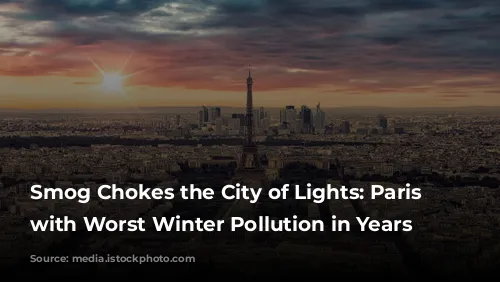
A New Era of Clean Air
As part of the ongoing anti-pollution measures, a new policy will require drivers to display color-coded air-quality certificates on their vehicles, reflecting their emissions levels. This system aims to restrict traffic during pollution alerts. The stickers will become mandatory in the Paris region starting January 16th.
The French Institute of Public Health underscores the grave consequences of air pollution, stating that it causes thousands of premature deaths in France due to cancer and respiratory illnesses. They estimate that fine-particle pollution alone contributes to 48,000 premature deaths annually in France, representing 9% of all deaths.
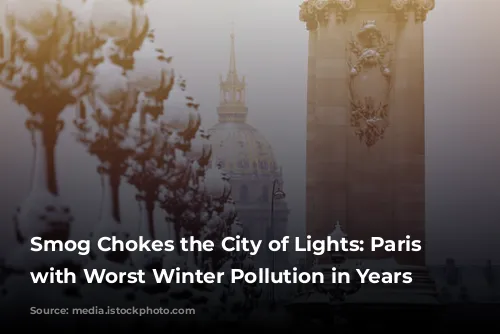
Urgent Health Concerns and Calls for Action
In light of the health risks posed by the pollution, Health Minister Marisol Touraine has declared a health alert for the Paris region and southeastern France, instructing hospitals to prepare for emergencies related to respiratory issues. Over 2,000 asthmatic children required treatment in Parisian hospital emergency rooms.
The government has also urged residents to limit outdoor activities until the pollution levels subside.
This ongoing struggle against pollution in Paris highlights the urgent need for sustainable transportation solutions and responsible environmental practices. The city’s efforts to reduce diesel vehicles and promote cleaner transportation options are crucial steps towards a healthier future for its residents and the environment.
